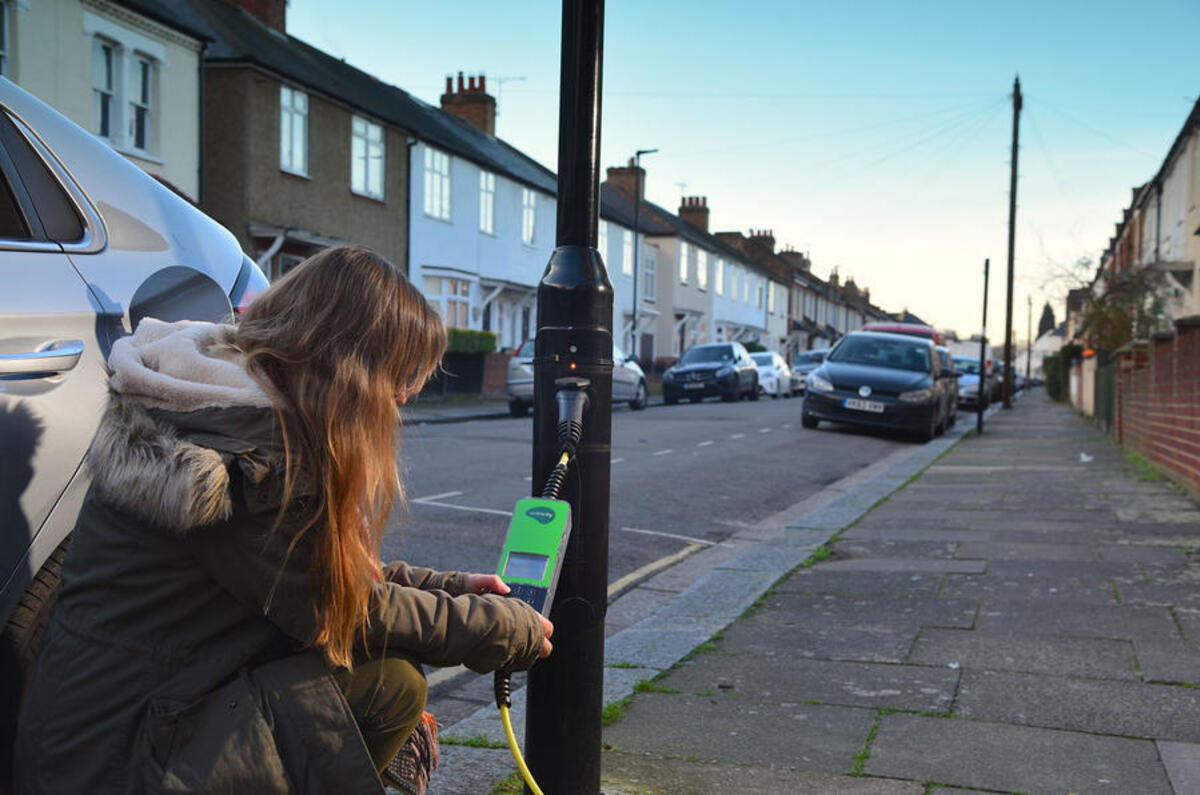Car industry bosses have called the huge rise in battery-electric and plug-in hybrid vehicle sales last year a “significant achievement” – but say that a massive investment in charging infrastructure and domestic battery production is needed in readiness for the UK government’s planned 2030 ban on new ICE vehicles.
Combined, electric and plug-in hybrid vehicles accounted for more than 10% of all UK new car registrations in 2020, compared with a 3.1% share in 2019. The 108,205 EVs sold last year represented a 185.9% year-on-year increase.
Mike Hawes, the head of the Society of Motor Manufacturers and Traders (SMMT), said that while the growth is hugely encouraging, it needs to be considered in context of the UK government’s 2030 ban on most non-zero-emissions vehicles. Certain hybrids will be allowed until 2035.
Hawes said being ready for that change in nine years “will challenge this industry, other industries in the UK and the global industry”.
He added: “What matters to achieve this target is having a strong industrial strategy from government that really ensures the UK remains competitive, attracts investment and remains a strong market [for EVs]. It’s a global challenge and one where the UK needs to take the lead and move as quickly as it can.”
Hawes called for “massive investment” to develop the infrastructure needed for mass EV uptake by 2030. He said: “We need a massive investment in infrastructure of something in the tune of £16 billion, with a lot going into public on-street charging.
"We’re still in the early adopter mode of EV sales but rapidly getting beyond that. One of the key things holding people back isn’t the range now but the availability of charging infrastructure. The gap is charging at home. In the same way people charge a phone overnight, people will want to charge at home when they park overnight.
“That’s fine if you’ve got a drive or designated spot, but around half of vehicle owners don't have a designated spot, so they’ll depend on public on-street charging. You need the assurance that you’ll be able to charge when you get home. I don’t think it’s for the car industry to be finding that infrastructure, it’s for the energy providers; it’s a market opportunity that the government needs to facilitate.”
Local battery production key to meeting 2030 target
Hawes also said that the UK needs to massively increase its production of electric car batteries, both to meet the 2030 target and to ensure the future strength of the British car industry.
The new post-Brexit UK-EU trade deal includes strict rules of origins requirements. These stipulate an increasingly high percentage of a vehicle must be produced in the UK or EU to avoid tariffs on goods crossing the UK-EU border. With batteries making up the bulk of an EV’s worth, the requirement will push firms to use those produced in the UK or EU.
The UK current has around 2GWh per year of battery production at Nissan’s Sunderland plant, and the planned Britishvolt gigafactory could increase that total to 15GWh – enough to build around 250,000 EVs a year. But Hawes said: “We’ll need to double that pretty quickly to build the volume we’ll require.








Join the debate
Add your comment
Is the concern about lack of charging infrastructure overstated? The figure usually quoted is 40% of UK drivers don't have their own off-street parking space, not 'around half' as the SMMT boss says. A slightly worrying grasp of percentages by the SMMT, you might say! So that potentially means 60% of UK drivers could buy an EV without any charging concerns. But there are plenty of drivers already running electric cars who park on the street, so this clearly isn't as big a deal as stated. Maybe Autocar should seek these drivers out and get some real-world feedback? Most of them drive Tesla's from what I've seen, so those owners at least clearly have no concerns about charging infrastructre.
Every new-build house must include dedicated off-street parking (ideally a driveway) and charging infrastructure for at least two cars. Any attempt to rely on mass kerbside charging - for reasons of economy or lack of political will - is doomed to disaster; it will wreck urban environments and sow the seeds of vicious neighbour disputes for decades to come.
So the car bosses needed to tell the government that they need to invest in electric charging infrastructure after the current government stated that ICE are to be banned from sale in the next 9 years. My strategy would be to say nothing about the charging infrastructure as the government must have a cunning plan to deal with the issue it has brought on itself and the rest of the UK for no obvious reason.